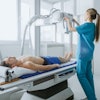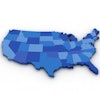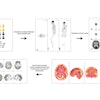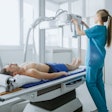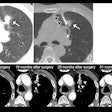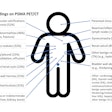Dear AuntMinnie Member,
The radiology community continues to be roiled by comments made this past week by former Stanford University neuroradiologist Dr. Scott Atlas, who urged residents of Michigan to "rise up" against new social distancing rules.
In an appearance on a Sunday news program on November 15, Atlas told residents of Michigan to resist new lockdown rules being implemented to prevent the spread of COVID-19 in the state. The problem is that many saw the language Atlas used to be highly inflammatory, especially in a state that has seen armed men enter the state capitol and a federal bust of a ring that allegedly wanted to kidnap the state governor.
Many radiologists have condemned Atlas' remarks, which also drew a statement from Stanford University, the host of the Hoover Institution, with which Atlas has been affiliated. Our coverage of the imbroglio was the top story on AuntMinnie.com for the week.
RSNA stories draw readers
The RSNA 2020 meeting doesn't start until Sunday, November 29 (enjoy an extra day on your Thanksgiving weekend, everybody!), but the RSNA has been releasing some of the research to be presented at the virtual meeting. Our coverage of the studies is already drawing reader interest.
For example, researchers from Penn Medicine will present findings that indicate diabetes and hypertension can increase the risk of stroke for patients with COVID-19 -- an indication of the far-reaching impact of the disease.
A group from the University of California, San Francisco will present findings acquired with MRI that show the negative effects of high-impact sports like tennis and racquetball on the knee joints of obese people.
And a group from Boston University has released findings on how issues like food and housing insecurity can affect how promptly women receive diagnostic breast imaging and biopsy for suspicious mammography findings.
You can read these articles in our RSNA preview special section, where you'll also find our Road to RSNA previews of different aspects of RSNA 2020, from artificial intelligence to enterprise imaging.
Ultrasound of COVID-19
Finally, be sure to visit our Ultrasound Community for a couple of articles on the use of ultrasound to track the long-term effects of COVID-19. One story details how Spanish researchers used the modality to follow COVID-19 "long-haulers," while a group from Saudi Arabia used point-of-care ultrasound to monitor the recovery of patients with severe disease.
